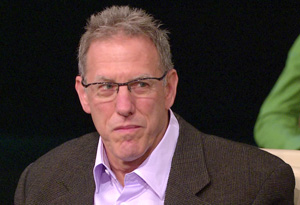How to Help Your Partner Cope with Male Sexual Abuse

You may feel like there's nothing you can do to help your partner address the lasting effects of childhood sexual abuse, but Dr. Howard Fradkin says there's always hope. Discover ways to help your partner cope...and strengthen your relationship along the way.
- If you remember just one thing, it's that love is very powerful. Communication, acceptance and caring for a survivor is very critical to that man, making him feel safe enough to talk with you. Remember: A survivor has had his trust betrayed, oftentimes by someone he knew or knew well, so his ability to trust others has been substantially impaired. Regardless of whether you're close to a man who has told you he is a survivor or you only suspect a man may be a survivor, it's very important to support him and earn his trust slowly.
- Never assume or tell a man you know he's a survivor of sexual abuse. If you suspect it, it's important to be gentle, because a survivor walks around with a great deal of shame, as men are "not supposed to be" victims. A gentle response might be to tell him: "I am here to listen to you. I am here to provide support to you, to talk about any problems you are having. I know you may be afraid of judgments. The only judgment I will have of you if you ask for my help is to give you my respect for your courage."
- When your partner does choose to tell you about his abuse, it will be a normal reaction to wonder if it is true. In fact, you may want to disbelieve your partner's truth because you feel way too much pain hearing about it. If you know the perpetrator, it may be even more difficult, especially if you have positive feelings or perceptions about the perpetrator. On occasion, there are ways to validate a survivor's story, but oftentimes, it's his word versus the perpetrator's. Being believed is one of the greatest gifts you can give a survivor. Empathizing with him about his pain, betrayal and shame is another great gift. Think about this: Given how difficult it is for most men to acknowledge they have been abused, why would you think they would make up a story about being abused? Lying is extremely rare; for most survivors, it takes a great deal of courage to speak the truth, and when they do, they need your acceptance.
It's natural for you to want your partner to talk about his abuse, his feelings and reactions. Just because you want to know doesn't mean your partner wants to talk. Tell him it's okay to take his time, to do it at a pace that feels safe enough for him. He may need to tell his story a little bit at a time, rather than all at once. In fact, for most men, this is preferable so they don't become overwhelmed.



